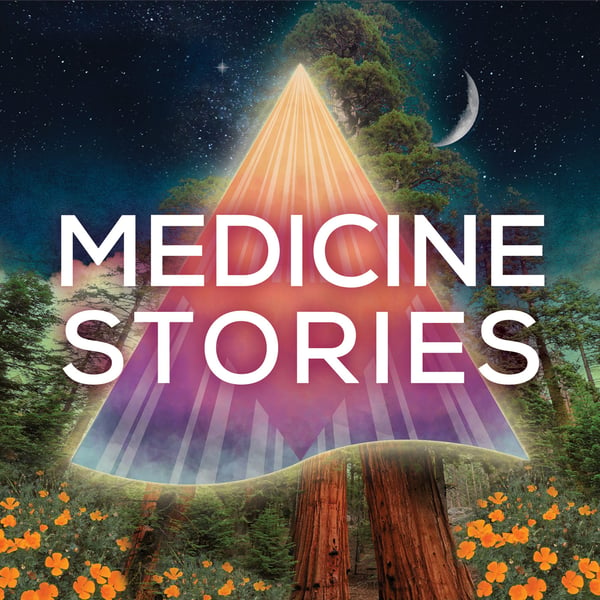27. Anti-Racist Genealogical Research (for Everyone) - Darla Antoine
Medicine Stories
Amber M Hill
4.8 • 1.3K Ratings
🗓️ 12 September 2018
⏱️ 71 minutes
🧾️ Download transcript
Summary
People of color have limited genealogical resources with which to find their ancestors, while people of European descent's ancestors gave up their ethnic identities in order to become "white". Both of these outcomes, which have cut most Americans off from their roots, are a direct result of racism and white supremacy. In this interview we discuss the history of colonialism in America and its effect on ancestral knowledge, and Darla shares tips and considerations for POC engaged in genealogical research and for white folks wishing to make meaningful cultural reparations.
In the Intro:
- Free access to the Anti-Racist Genealogical Research webinar!
In the Interview:
- Genealogy is America's favorite form of ancestral reverence (and the difference between genealogy and ancestry)
- The story of Darla’s maternal indigenous grandmother and white grandfather
- The construction of whiteness in early America
- White bias in DNA tests and considerations for people of color interested in taking a test
- The history of the One Drop rule for black folk and Blood Quantum for Native Americans
- Ideas for people with settler ancestry who wish to make cultural reparations
- Manifest Destiny & how oppressors need to make up myths for why they deserve to oppress people
- Genealogy research self care ideas for people of color
- Putting our personal family stories in a larger socio-historical context
- Project ideas for making something tangible out of your genealogical research
- Breaking down autosomal, mitochondrial, and Y chromosomal DNA and what those tests show
- The importance of forming a research question when engaging in genealogical research
Links:
- Darla's website
- Medicine Stories Patreon (get the free webinar here!)
- My website MythicMedicine.love
- The Medicine Stories Facebook group
- Take my fun Which Healing Herb is Your Spirit Medicine? quiz
- Mythic Medicine on Instagram
- Music by Mariee Sioux (from her beautiful song Wild Eyes)
Transcript
Click on a timestamp to play from that location
| 0:00.0 | But then you can really get deeper into that and find out more that would fulfill this desire to know who your ancestors are, |
| 0:08.0 | meaning like where did they come from, what do they value, what were their rituals, all of those those things that's where I think it goes |
| 0:15.3 | from genealogy to more of like ancestral reverence and ancestral connection. |
| 0:27.0 | Hello friends and welcome again to medicine to friends and welcome again to Medicine Stories. |
| 0:31.0 | I'm Amber Magnolia Hill. This is episode 27 and we've got |
| 0:36.7 | Darla Antoine back to talk about anti-racist genealogical research. |
| 0:43.7 | So if you're a white person, the very fact |
| 0:46.6 | that you can access genealogical records |
| 0:48.8 | as far back as 700 years ago or more |
| 0:52.2 | is because of racism and white supremacy. |
| 0:54.8 | Settler, colonialism, slavery, their white privilege of owning homes, |
| 0:58.9 | getting educations, and intergenerational wealth have all loved paper trails, trails that you can follow to piece together your ancestry and ways that people of color cannot. |
| 1:09.0 | So how do you honor, celebrate, and become excited about finding your ancestors while reconciling |
| 1:14.9 | the racism that makes it possible? |
| 1:17.7 | That is in part what we talk about, and if you are a person of color, you have some very real hurdles to cross in your genealogical research, including white bias and intergenerational trauma triggers. |
| 1:31.0 | Knowing where to look for information and how to take care of yourself when you find those triggers is a must when considering beginning genealogical research. So that's the other part of what we talk about today and what Darla's webinar anti-racist genealogical research is all about. |
| 1:47.8 | What I just read is Darla's writing, those are her words, and so, yeah, what we talk about today, |
| 1:55.0 | this conversation is based on a webinar |
| 1:57.2 | that Darla put together that I watched, |
| 1:59.6 | followed up on a lot of the resources from, |
| 2:02.1 | took action on, and. and as a part of this podcast release, Darla and I really wanted to make this webinar |
| 2:10.4 | accessible to everyone, especially people of color who are going to have a harder time |
... |
Please login to see the full transcript.
Disclaimer: The podcast and artwork embedded on this page are from Amber M Hill, and are the property of its owner and not affiliated with or endorsed by Tapesearch.
Generated transcripts are the property of Amber M Hill and are distributed freely under the Fair Use doctrine. Transcripts generated by Tapesearch are not guaranteed to be accurate.
Copyright © Tapesearch 2025.

